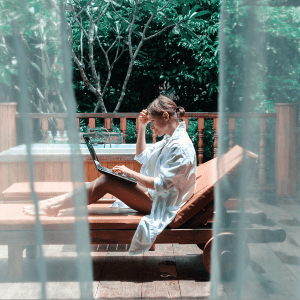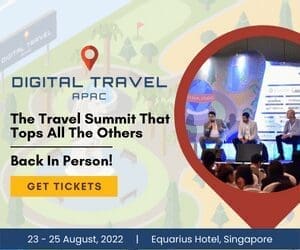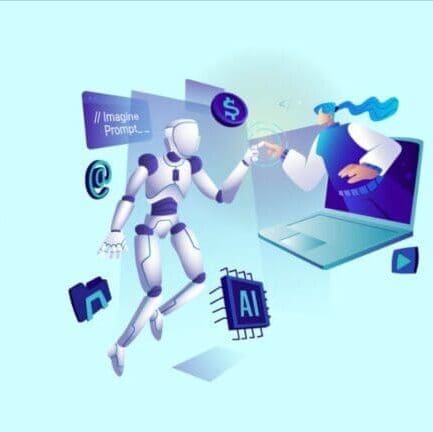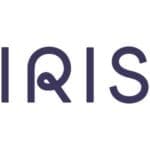In partnership with Digital Travel Summit APAC, eHotelier had the pleasure to speak with key conference speakers, discussing the implications of remote work to the hotel industry globally.
 Staffing is the number one challenge facing hospitality leaders globally, now impacting revenue generation as profoundly as the impact of COVID.
Staffing is the number one challenge facing hospitality leaders globally, now impacting revenue generation as profoundly as the impact of COVID.
The exodus of talented, professional team members at all levels of hospitality to other industries has resulted in a crippling environment where hoteliers and hospitality professionals are faced with limiting business levels to maintain business operations.
So why won’t they come back?
Aside from the usual challenges of remuneration and unsociable working hours, hoteliers are now faced with talented professionals being offered flexibility in their working environment in other industries.
Companies worldwide across many industries have transitioned from face-to-face, office-based working to working online, a challenge that the hospitality industry has difficulty meeting.
As a result, conferences and business travel have also become comfortable with online communications, meetings, and events, placing pressure on these segments’ recovery post-COVID.
Difference between working from home and remote work
Working from home and working remotely have been used interchangeably in the past as it was commonly accepted that team members could work remotely, but only from home. Remote work is now not confined to home but has expanded to working anywhere you can be online and focussed.
This flexibility is making employment less and less location dependant, and while creating a whole new pool of talent for hotel companies in office-based roles, is also making it significantly more difficult to attract professional customer-facing team members.
Meanwhile, business travellers are now combining leisure trips with business, clouding the purpose of stay, resulting in higher apparent leisure travel, while the traveller is also on business.
The digital nomad era
Since the start of the pandemic, we can see that the global workforce is growing more attracted to companies that support remote work from different locations. This is creating opportunities for digital nomads, employees seeking work-life balance at all ages and in all roles, as well as stay-at-home who were left out of the workforce pre-COVID.
Natalie Ip, Head of Sustainability at Dorsett Hospitality International, said: “With the hotel industry bouncing back from the pandemic, the industry continues to struggle with hiring globally. Hotels must re-evaluate departmental functions and fit for specific hotel brands and systems before considering remote working roles and remaining open to innovations. For remote working to succeed, hotel teams need clear communication channels and two-step security access to work information on their company information access to ensure that customer and company data are secure. Not only does automation allow more remote workers to be part of the team but also for hotels to rethink the potential for new spaces to allow staff wellness.”
For the hotel industry, where the focus is on ‘the property and, at its core, in-person service and interactions, attracting this new workforce can be challenging.
Ankit Tandon, Chief Business Officer and CEO, South East Asia & Middle East at OYO, explained that for OYO, many factors need to be considered around remote working. “The pandemic has removed the boundaries that once demarcated where we work, live, and play. Remote work and flexibility are fast becoming the predominant way of working, and OYO firmly believes in that ethos.
OYO’s flexible working culture is built on a combination of communication, collaboration, and connection and acknowledging that all OYOPreneurs are individuals committed to doing what’s right for our business and the people we work with.
With a presence in 35 countries worldwide with multiple offices in each of these countries that we operate in, we believe in giving OYOpreneurs the flexibility to work wherever they are most productive in an environment that works best for them. This is subject to having all the necessary visas and documentation to work in the location of their choice.
We believe in giving OYOpreneurs the flexibility to work wherever they are most productive in the best environment. This could mean coming to an office consistently, working from home daily, or something in the middle.” Ankit said. ” A person’s ability to work from home is highly dependent on the area of work they are in. We recommend working from the office for roles that require collaboration with larger teams and/or are dependent on other functions while some can be flexible.”
“Some jobs which are collaborative in nature or involve handling sensitive data may require it to be done in the office or a location that has the required security protocols to prevent it from being breached. “
“OYO has multiple offices in each of the countries we operate in and offer flexibility to OYOPreneurs to work from them. At same time for ppl who want to still WFH we offer convenience of doing that with checks of coming to office on select days.”
“Many of our OYOPreneurs are young and they prefer to work from the office as they see it as being collaborative and fun.”
“There is no one policy for all. Instead, it will need to be done in collaboration and corroboration with the individual’s managers to ensure it is in the best interest of the individual, his/her colleagues/team and OYO.”
As one of the key promoters of travel and mobility, Colm Flanagan, Head of Global Chain Partners, APAC explained: “At Hotelbeds, we have implemented an official hybrid working policy where employees must do two days a week in the office while the other 3 days are optional. This balances the need to have face to face interaction with colleagues and ensures new staff can start to build meaningful relationships while offering great flexibility to everyone. We have also recently implemented a 30 days a year work from anywhere policy which offers all staff across the organisation the opportunity to work from anywhere in the world for up to 30 days per year. We are an integral part of the travel industry and it’s important to us that our staff can reconnect and renew their passion for travel and the industry”
Workation vs business traveller
The standard amenities offered to business travellers, such as free wifi and executive club access, may not be enough to entice ‘workationers’ who travel with friends and family while using your hotel as their office.
Blessy Townes, Vice President and Head of Digital Marketing and Branding at Discovery Hospitality, recently said: “After being cooped in the house, employees, freelancers and entrepreneurs now refuse to be cooped in a cubicle. With the quitting trend on the rise and people leaving their jobs in droves to switch jobs, industries or setups, hotels should be able to offer a borderless environment to remote workers living multiple lives in one lifetime. Flexible workstation experiences, packages, rates, and amenities are a given; the race is on for brands to uniquely deliver a holistic 360° scope of services bespoke to the new breed of digital nomads that emerged during the pandemic, particularly in terms of varying family size and age, fitness, wellness, and technology requirements.”
Mr Tandon also said: “For our guests who want to work from anywhere, OYO represents reliability and trust in a single brand. Guests know what to expect in an OYO – Clean living spaces, stable internet connection at affordable prices. Guests can choose to work from more than 157,000 hotels across 35 countries worldwide.
Affordability is a deal breaker in deciding where to work from anywhere. Similar to airlines, and ride-sharing companies, OYO adopts dynamic pricing with AI and machine learning delivering predictable and affordable tariffs to customers while reducing our cost of operations significantly (while fixed costs remain undeterred). “
“Technology now powers all ends of OYO’s business right from booking of hotel rooms, onboarding of patrons, daily business and revenue management to resolving customer queries, etc. From search – booking – check-in – room order to check-out to providing feedback, guests can also complete an end-to-end journey on their app. We’ve also reduced manual contacts / calls through – Yo Chat , IVR and agent based chats.”
“In addition to digital and customer experiences, advanced cybersecurity will become even more crucial as hotels integrate more technology into their businesses. Hotels also need up-to-date cybersecurity technology to protect internal communications and other sensitive business information. Cybersecurity systems will need to be able to combat phishing and other cyber-attacks while keeping their data adequately backed up and recoverable.”
Whilst we must be aware of all the new considerations to accommodate the new breed of workers, we cannot forget the traditional amenities that are still important to today’s travellers. “Our main responsibility at Hilton is to guarantee that our guests are comfortable and well taken care of. Across our diverse portfolio of brands, our guests can easily find the right hotel to suit their preferred work environment – whether it’s within a bustling city center or a relaxing island escape. We also ensure that we offer business travelers meaningful technologies and functionalities and deliver a seamless experience for them. For example, our hotels provide state-of-the-art event spaces with the latest technologies to support meetings and events of all sizes. For event organizers, we’ve developed a suite of solutions to address complex issues of coordinating groups, meetings and events in today’s environment. At the same time, our Hilton Honors program offers unique experiences that our guests can enjoy when they travel for business, leisure or a blend of both.” Explains Liz Perkins, Vice President, Revenue Management & Commercial Services at Hilton APAC.
 About Digital Travel Summit APAC
About Digital Travel Summit APAC
Attracting the top hoteliers, airlines, cruise lines, car rentals and OTAs, Digital Travel Summit offers senior travel professionals the unique opportunity to address their most pressing digital challenges and network with key market participants. We’re all about intimate, small-group networking, achieved through synergy workshops, drill-down roundtables, creative boardrooms and unique networking games. You will walk away with a “how to” guide for transforming your digital strategy to drive online revenue growth and stay ahead of the competition.
About the Speakers
 Ankit Tandon, Chief Business Officer and CEO, South East Asia & Middle East at OYO
Ankit Tandon, Chief Business Officer and CEO, South East Asia & Middle East at OYO
 Blessy Townes, Vice President and Head of Digital Marketing and Branding at Discovery Hospitality
Blessy Townes, Vice President and Head of Digital Marketing and Branding at Discovery Hospitality Natalie Ip, Head of Sustainability at Dorsett Hospitality International
Natalie Ip, Head of Sustainability at Dorsett Hospitality International
 Liz Perkins, VP, Revenue Management & Commercial Services, APAC at Hilton
Liz Perkins, VP, Revenue Management & Commercial Services, APAC at Hilton Colm Flanagan, Head of Global Chain Partners, APAC at Hotelbeds
Colm Flanagan, Head of Global Chain Partners, APAC at Hotelbeds
Colm has over 20 years of experience working in Sales, Account Management, Partnerships & Business Development within the travel and hospitality industry. He has spent the last 10 years with Hotelbeds, where he currently works as Head of Regional Chain Partners APAC. Hotelbeds is the world’s largest global wholsaler, providing hotels & resorts distribution access to a network of over 60,000 B2B travel buyers such as tour operators, retail travel agents, airlines, and loyalty schemes in over 140 markets. Prior to his current role, Colm has held several senior commercial leadership roles with Hotelbeds, including Regional Sourcing Director South Asia based out of Singapore, leading teams across Indonesia, Malaysia and Singapore and prior to that Regional Sourcing Director for East Asia based out of HK, where he lived for 7 years, overseeing teams in Japan, Korea, HK & Taiwan.




















